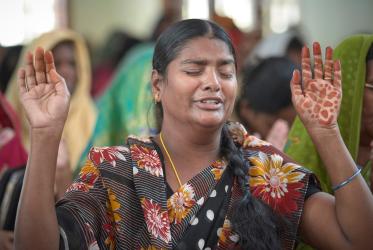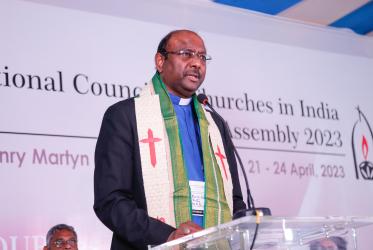Indien
India's first civilization along the Indus valley goes back to 2500 BC. Aryan tribes invaded the region about 1500 BC and introduced the Vedic religion, which was the foundation of Brahminism and the caste system. Christianity was introduced in 52 AD by the Apostle St Thomas. Muslim influence began in the 10th century. In the 16th century, Muslim invaders from the north established the Moghul empire. European presence in India began with the Portuguese in 1498. In the 19th century Britain assumed political control of India. Nationalism found its expression in Gandhi's movement of non-violent civil disobedience. The independence movement was dominated by the Hindus. A Muslim league demanded a separate Muslim state. At independence in 1947, the sub-continent was partitioned between a Hindu majority India and a Muslim majority Pakistan. India's economy ranges from traditional farming to modern industries and high technology. The country is rapidly becoming a regional and global power, but is still facing dire poverty of over one third of its population. The caste system still exists and discriminates millions of Dalits. Christians are a minority. Estimates vary from 3to 6 percent. The three major groups of churches are those belonging to the National Council of Churches, the Catholic Church, and the churches and groups represented in the Evangelical Fellowship of India (affiliated with WEA). In recent years, these three groups have been working together more closely. Pentecostals, who form about 6 percent of the total number of Christians, are not part of any of these three groups.
Ecumenical solidarity visit to India
An international ecumenical team of church representatives, so called "Living Letters", paid a solidarity visit to churches and ecumenical organizations in India from 21 to 27 September 2009. Read more...




